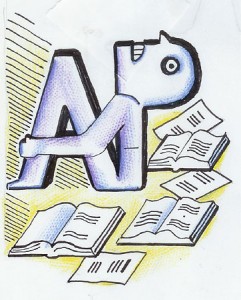Advanced Placement (AP) courses, created by the Unites States College Board, are college-level curricula offered by universities or colleges to high school students. Grant placement and course credit is often given to those who obtain high scores on the examinations. Currently, there are more than 30 existing Advance Placement courses on multiple subject matters offered.
The Advanced Placement Courses had a long history. It started after the Second World War the program was pioneered by prep schools until them issues a report allowing high school seniors to study college-level material and take an achievement exam that allows college credit for high scorers. A pilot program was run during 1952. Ever since, millions and millions of students each year take Advance Placement examinations to qualify.
The College Board allows students to take any exam no matter what course he is participating under. This means that students studying online and those from schools without Advance Placement courses can equally take the examination.
AS of 2015, each exam costs $91, though financial support is given by local and state programs. For students who qualify, they are given discounts. Additional reduction depends by state. The number of AP exams keep on climbing up each year.
Wondering about the exam structure, the questions and time to finish the exam depends on the subject. The test consist of multiple choices, essay, and questions with short answers. The score rate is from 1 to 5. AP credits vary from school to school. Some offer Advanced Placement Courses for a rating of at least 3. Taking the exam does not mean you have to take the AP courses. If you consider sitting for the AP exam, you can register from your school coordinator. This person will tell you the cost and venue of the exam.



